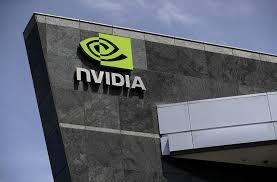Nvidia, a leading AI chip giant, is reportedly working on a version of its new flagship AI chips tailored for the Chinese market to comply with current U.S. export controls.
The new chip, tentatively named the “B20,” is part of the “Blackwell” chip series unveiled by Nvidia in March, which is set to be mass-produced later this year. The B200, a component of this series, is reported to be 30 times faster than its predecessor in certain tasks, such as providing responses from chatbots.

The move comes in response to Washington’s tightened controls on the export of cutting-edge semiconductors to China, aimed at preventing advancements in supercomputing that could potentially aid China’s military. In light of these restrictions,
Nvidia has been working on developing chips specifically tailored for the Chinese market. The company is expected to collaborate with Inspur, one of its major distributor partners in China, for the launch and distribution of the B20 chip.
The decision to develop a China-focused AI chip reflects the evolving landscape of international trade and technology regulations. The endeavor also underscores the strategic importance of the Chinese market for global technology companies, despite the challenges posed by export controls and geopolitical tensions.
Nvidia’s efforts to navigate the complexities of export controls and compliance highlight the company’s commitment to maintaining its presence in the Chinese market. The development of the B20 chip is a testament to Nvidia’s adaptability and strategic approach to addressing regulatory challenges while continuing to innovate and serve diverse global markets.
The impact of U.S. export controls on the semiconductor industry has been significant, prompting companies to explore tailored solutions to navigate these regulatory constraints. The development of the B20 chip for the Chinese market is a reflection of the broader trend of technology companies adapting to evolving trade dynamics and geopolitical considerations.
As the global technology landscape continues to evolve, the development and launch of the B20 chip will be closely watched for its implications on the semiconductor industry, international trade dynamics, and the strategic positioning of technology companies in key global markets.




